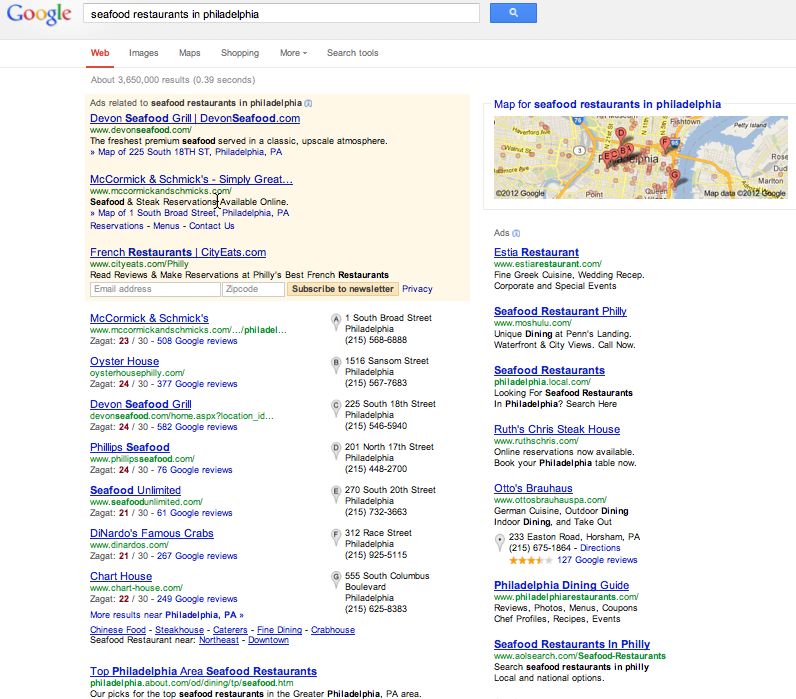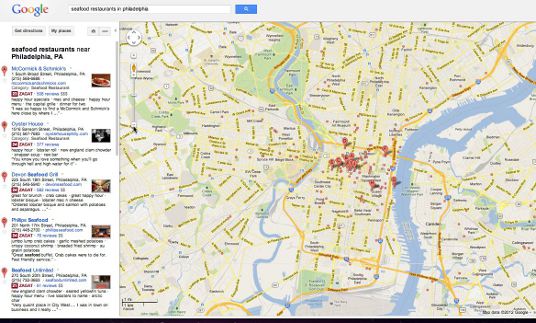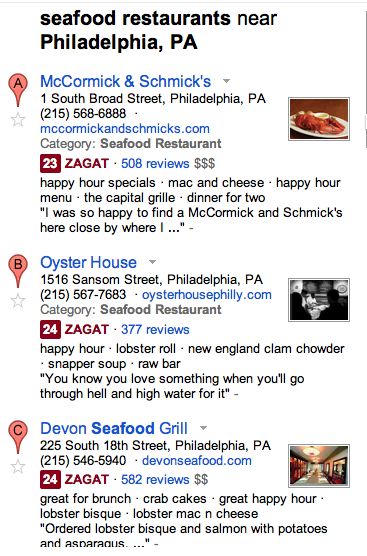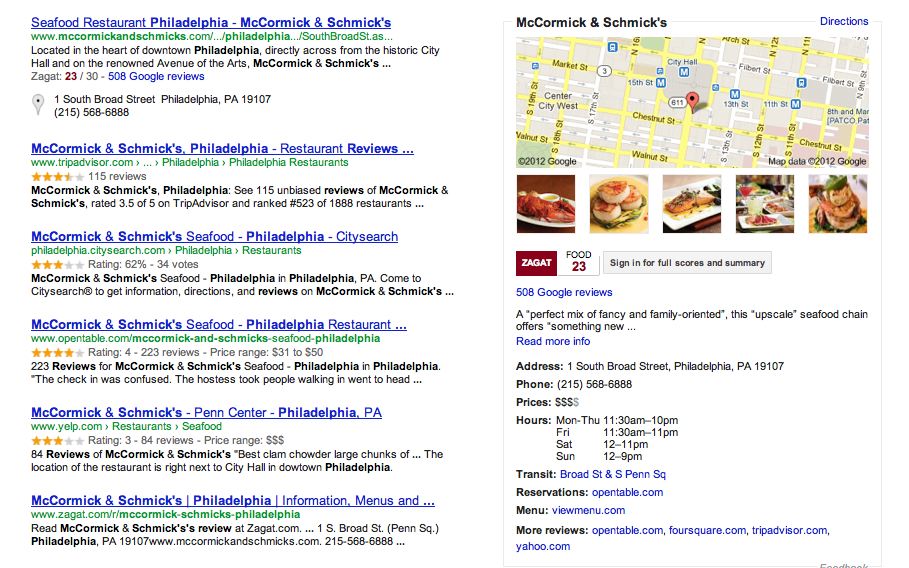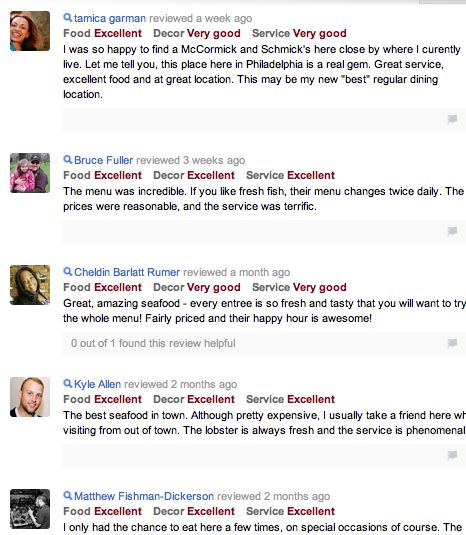Many local businesses that rely on online search for patrons, such as restaurants, lawyers, and construction sites find their search results squeezed by PPC ads and increasing numbers of local search results, as Google and Bing try to show the most relevant results to the searcher, based on the search word and the location of the searcher’s device. One of the best Internet marketing strategies for local businesses is to invest in both PPC advertising and local SEO.
Local search listings are one of the most complicated aspects of the search engine algorithm, as they are made up of intersecting factors in local, social and global search. There are many factors that help a website show up in local search, including website optimization, optimization of Bing and Google + Places listings, influence of social media sites such as LinkedIn and Twitter, presence on video sites such as YouTube, presence on local directories such as Yelp and Manta, and presence on local opt in sites such as Groupon and Living Social. In specialized fields, such as law, there are also directories for reviews like AVVO that play a part in local search rankings. In all cases, reviews, ratings and testimonials are important for better search placement.
Any local search marketing campaign should include:
- Claiming and optimizing the local listing
- Social Media profile setup and optimization
- Set up and optimize local directory listings
- An ongoing strategy to collect reviews
Local SEO makes it much easier for the search engines to find and validate your business local listing. Search engines want to show the most pertinent and targeted business listings for each search, and as people move around and search with their mobile devices, the geo-targeted results they expect from search engines should move with them. The search engines rely not only on the information on the business listing, such as the categories of products and services, but also on directories, the business website, reviews, and the address of the searcher in comparison to the business. In fact there are hundreds of criteria for ranking better in local search results.
Factors in local listing optimization include:
- Physical address in city of search
- Distance of your business to the center-point of the user’s search and / or the location of the searcher based on IP address (centroid)
- Categories on the local listing that match the search keywords
- The number of visitors that view the search engine’s map listing
- The number of reviews
- Whether the listing contains pictures, videos and maps
- The business listing title
- Use of local area code on the listing and web pages
- Age of the listing and website domain
It isn’t only the number of reviews that is taken into account either. The factors in review rankings are:
- Number of reviews and the consistent flow of reviews
- Ratings
- Whether the location, product or service and other keywords are used in reviews
- The number of reviews from directories like Yelp, Foursquare, and Indeed
- The authority and reputation of the reviewers
The Need for Citations:
In local SEO, it is important to create consistent citations for the business. A citation is the mention of your business name, address, and phone number on other websites. These citations also count as inbound links and factor into global search as well. One way to find good places to put citations is to search for places where potential clients could look for reviews about the business. On some of these review sites it is even possible to suggest that reviewers answer questions such as
“how were our directions?” and “what services or products were you most impressed with?”
The Need for Consistency:
All directory listings for a business should be consistent, especially on the name of the business, address and phone number. This provides search engines with a reliability factor about the business.
The need for Links and Popularity:
Search engines are much more likely to recommend a businesses if a lot of reputable websites link to it. The more links to the site, the more popular search engines think the site is.
Reviews:
Search engines are much more likely to show a listing if there are lots of reviews for the business. Review sites like Yelp and FourSquare allow search engines to validate the business information. The reviews themselves are also a wealth of keyword opportunities for businesses. If a keyword occurs in many different reviews, search engines are more likely to show that listing when the keyword is searched. Unfortunately it is often hard for business owners to ask for reviews. One idea a local business had was to ask for a review in the yearly Christmas card to its clients.
By implementing a strategy to increase the number of online reviews, you’ll be validating the business information and optimizing for many keywords. This process will increase ranking and bring more visitors to the site.
Website Optimization
The website landing page linked from Places has become very important. This page should be optimized, have the city and state, and also show the business name, address, and phone number.
Geographic Proximity:
Google uses geographic proximity in the algorithm so that when users perform a search for a business for a particular city, Google shows businesses located within that city’s border, and in the most popular neighborhoods of that city. It seems to be beneficial for a business to have a location in the nearest city, in a popular neighborhood if possible.
A Video Where Our Team Discusses Local Search and Social Signals


